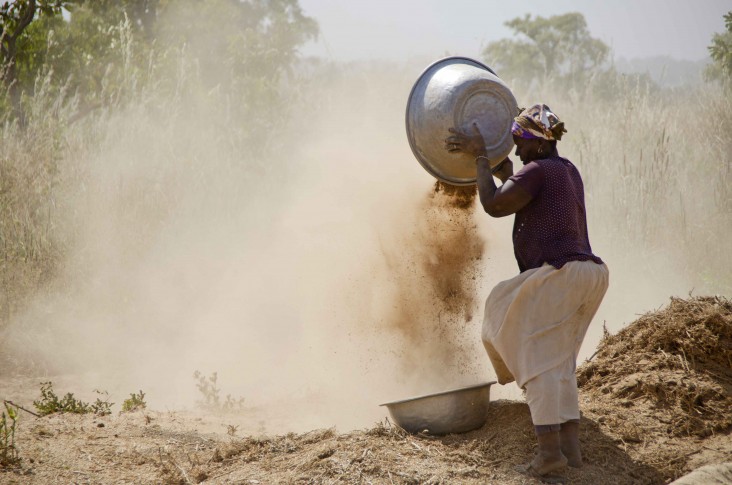Speeches Shim

Agricultural growth is the major driver of poverty reduction, especially in northern Ghana, an area characterized by high poverty and malnutrition – and one historically left out of the rest of the country’s growth and development plans. The north is an area rich in diversity with multiple ethnic groups, languages and religious groups. Agriculture is the largest source of employment for these communities, mostly small-holder farmers with five acres or less. Farmers in the north are challenged by poor soils, low productivity and changing and increasingly unpredictable rainy seasons.
Ghana is a focus country for Feed the Future and the initiative is contributing to the government’s commitment to food security, building on a common purpose shared among civil society, the private sector, and development partners.
Feed the Future in Ghana focuses primarily on rice, maize, and soybean production in northern Ghana where poverty and nutritional indicators (especially among children) are the worst. The approach integrates nutrition and gender issues throughout and emphasizes improving the resilience of vulnerable households in targeted communities. The program also improves the sustainable management of marine fisheries – an important source of protein for poor families, especially in the north, where dried fish is a critical part of the diet.
Feed the Future supports research into better crop yielding seed varieties, increases farmers’ access to credit and inputs, improves critical irrigation infrastructure, links farmers to markets, and works to support stronger policies to encourage private sector investment.
Sustainable Agriculture
USAID takes an integrated approach to sustainable natural resource management. Our work ensures that the environment and natural resources are managed in ways that sustain agricultural productivity. We also work with local communities and district governments to protect forest and marine ecosystems and fisheries in the Western Region. A new agro-forestry project in northern Ghana will focus on improving natural resources, including tree-crops that provide income to women and are an important source of food and nutrition to families during the lean months leading up to the first harvest of the year. An emphasis on climate-smart agriculture across Feed the Future projects reduces the vulnerability and risk to farmers, increases soil fertility, reduces production costs, and increases yields. These activities are aligned with the Government of Ghana’s objectives of poverty reduction, food security, sustainable management, and conservation.


Comment
Make a general inquiry or suggest an improvement.